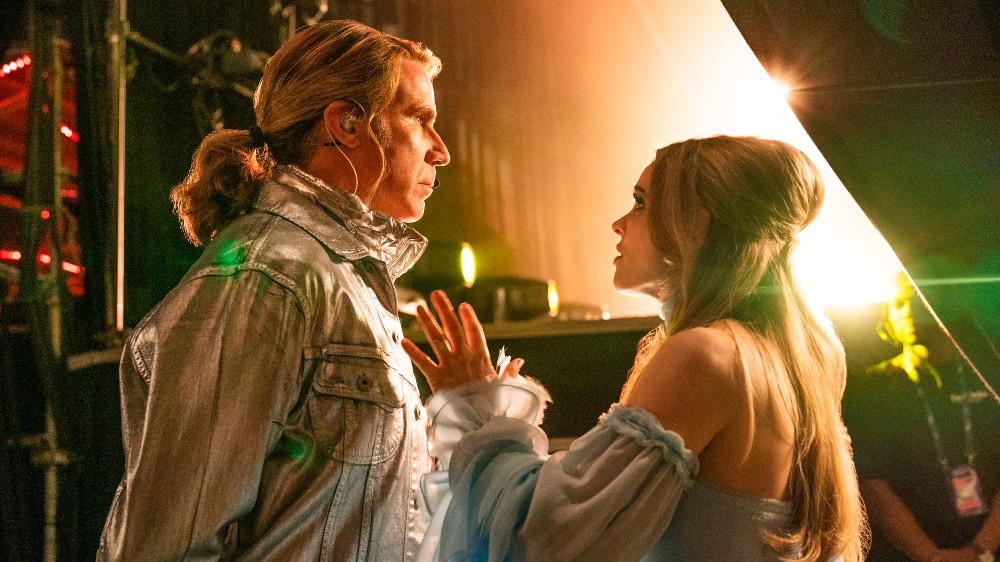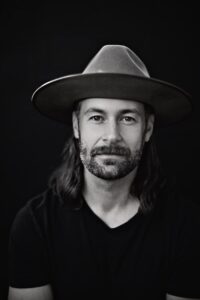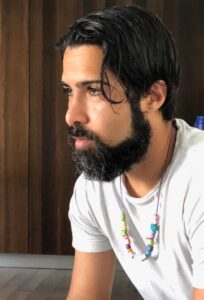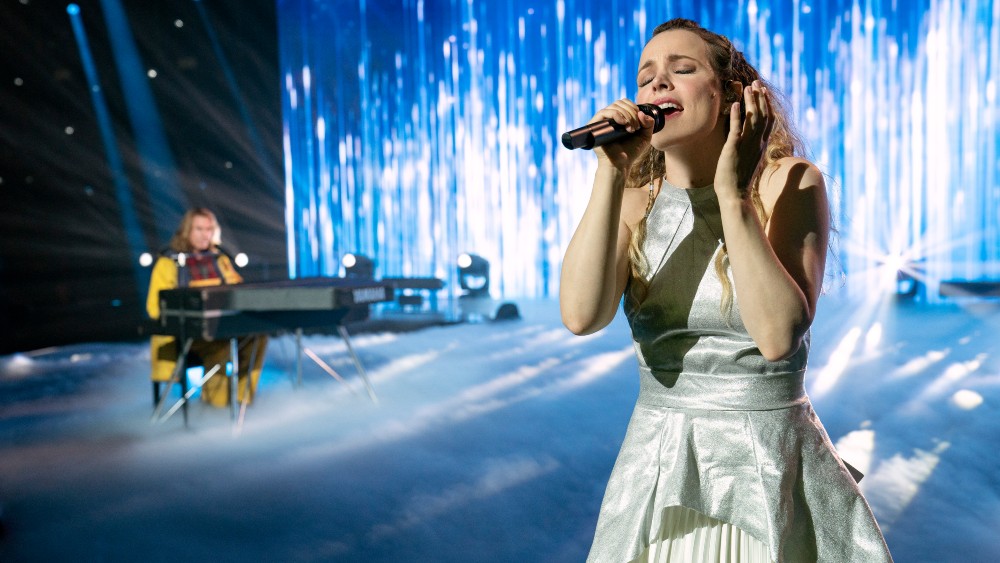
There is no denying the power of a song, and in the case of “Husavik,” written by the songwriting team of Savan Kotecha, Max Gsus, and Rickard Göransson, that power can be felt as far away as Iceland. The song, which translates to “My Hometown,” was written exclusively for Eurovision Song Contest: The Story of Fire Saga. Even this prolific threesome, who set out to write a ballad based on loving your hometown, couldn’t have predicted the meaningful impact their 3-minute-40-second feel-good ditty would have worldwide, particularly on the tiny Icelandic town of Husavik and the members of the Academy of Motion Picture Arts and Sciences, who rewarded them a nomination for “Best Song” at the 93rd Academy Awards.
No strangers to making musical hits, the Swedish songwriting collective*, as they are known in Los Angeles, have either produced or written songs for an impressive array of musical stars. (*Gsus and Göransson come from Sweden, while Kotecha married a Swedish woman.) Kotecha and Göransson’s past collaborations include smashes for Ariana Grande (“God Is a Woman”) and Nicki Minaj (“Bang Bang”). Also in the mix are Ellie Goulding (“Love Me Like You Do”), The Weeknd (“I Can’t Feel My Face”), and Britney Spears (“If U Seek Amy”), to name a few.

For Eurovision Song Contest: The Story of Fire Saga, they were tasked with writing “Husavik,” a pivotal and emotional song in the film, that is selected to be performed by the characters Sigrit (Rachel McAdams) and Lars (Will Ferrell) representing Iceland in the uber-popular Eurovision Song Contest after a ship carrying more prominent Icelandic singers explodes.
For those unfamiliar, the Eurovision Song Contest in real-life attracts 200 million television viewers each year since 1956, and is a huge celebration in Sweden. The songs are sung and performed everywhere.
Performed in the film by McAdams with heartfelt sincerity, the song is actually sung by Swedish pop star Molly Sanden, but features Ferrell (Lars) singing background vocals and Gsus playing the piano parts. When Kotecha, Gsus, and Göransson learned their song was nominated for an Oscar, it was even more bittersweet.
Below the Line spoke with the trio about what inspired the song, and how it has been embraced as Husavik’s town anthem and become a worldwide smash.
Below the Line: Were you surprised that the town of Husavik campaigned for the song to get an Oscar nomination with a video starring local house painter Sigurdur Illugason, and how they’re rallying around the song as an anthem for the town?
Max Gsus: That was a huge surprise. It was a pretty thin line to walk on – to write a love song to a hometown that isn’t even your hometown. If someone wrote a song about my hometown, [it] doesn’t necessarily guarantee I’d like it! (laughs) We tried to write it really honestly through the eyes of (the character) Sigrit and she really loves Husavik. We can’t believe how cool it is that they actually like our song that we wrote about them.

Savan Kotecha: One of the best things about this was we were actually on a call with the Mayor of Husavik (Kristjan Magnusson.) They made a video that went viral, and [Sigurdur Illugason, who stars in the video] reached out to me after and sent me this long note about how much the song means to the town and the kids are learning it in school and they’re singing it in church and in retirement homes. The Mayor said they’re closing the schools the day after the Oscars so everyone can stay up and watch. It’s become like a tourism thing for them, but everyone is so proud and rooting for us and it’s so heartwarming. When the world opens up more, that’s gonna be one of the first places we go.
BTL: How would you describe your collaboration? What did each of you contribute to the song?
Kotecha: I was asked to executive produce the music of the movie, and at the time, they [Gsus and Göransson] were both in L.A. in our studio complex. I spoke to them about coming along for the ride and [writing] a song for a few of the scenes but this scene specifically. We all had a discussion about what the song should feel and sound like.
Rickard Göransson: I feel like the collaboration is necessary to write good songs. Most of the songs I’ve had success with usually comes from a good team. If you work with good people, they inspire you to be comfortable to share your ideas and be open to suggestions. That’s how we usually create music.
Gsus: The song had been kind of wandering back and forth between our three computers and our three heads and you each mold it this way and send it back to the other guys, and we see what each of us feels about it.
BTL: How did you get to the emotion of the song?
Kotecha: We talked with [Director] Dave [Dobkin] about what [Sigrit] is going through. In the beginning, that moment was going to be a comedic moment. They were actually all going to explode into an orgasm when she sings the Spirit note! Then when they got close to shooting, they started hearing what the song was shaping up to be which became this emotional moment in the movie when Lars accepts what Sigrit’s feeling. It helped find the heart of the movie.
Göransson: We knew that our goal was to create an emotional song that would feel heartwarming but also have this emotional ending. They both kind of shaped each other. When they heard the song they changed the ending. It’s beautiful to see how it all came together.

BTL: How did you find Molly Sanden, who sings on the track for Rachel McAdams’s character Sigrit? What exactly is this magical Spirit note?
Kotecha: It started with the first song for the movie, “Double Trouble,” where we needed someone to sing it before we played it for the director. I never used a singer in L.A. to demo a song. My co-writer on the song suggested his friend Molly who was in town from Sweden. At the moment, I didn’t realize that Molly was such a huge pop star in Sweden. So she came in and sang the song and she killed it, and when I played it for the director and everyone they were like, “That girl is amazing. Can she sing the rest of Sigrit’s part?” Rachel came into the studio for the day to track vocals, and it was great, but she wasn’t a singer like Molly. She had the same timbre in her voice, so we were able to blend the parts of Rachel into Molly’s performance. The hotel scene where Sigrit is writing the song on the piano is all Rachel, but you can still believe that’s the same singer who sings it out. It was a pure coincidence like lightning in a bottle.

Gsus: The Spirit Note is the high note, and we don’t know exactly what that note is, but it’s between the traditional Western notes. It’s a magical note that you can’t find on a piano. We had absolutely no idea if Molly could actually do it. She had to go as high as she could for as long as she could, and then add some bravado. Basically we closed our eyes and hoped she would make it!
BTL: In a weird way, this film and the song “Husavik” has had even more of an emotional impact due to lockdown. Do you agree?
Kotecha: It came out at a time when the world really needed a laugh. Before the pandemic, we had this really fun marketing plan for the music. If the world hadn’t shut down celebrity musicians would get merch boxes where there were Instagram stories like “Fire Song is like the best band ever!” We were gonna make Fire Song a real band and just hype it and release “Volcano Man” (sung by Will Ferrell and Molly Sanden in the film). What also helps our song is the world, especially in America, re-prioritized that when your health is in danger it’s only the fundamentals that matter. That’s sort of what Sigrit’s message to Lars was the whole movie. He’s like, ‘all of this is great and I don’t really care about that. I just want you. I don’t need this big life with these fancy things and fancy people. I just want to be at home with you.’ We all sort of came around to that. There were a lot of ambitious people who realized what really matters.
Gsus: The silver lining of this whole pandemic has been to be grateful for what you have and what’s close to you and the people you love. The story of the song resonates even more. It’s been a really tough time for a lot of people so to make someone smile or laugh or feel some emotions during this time has been a privilege.
“Husavik (My Hometown)” can be heard in Eurovision Song Contest: The Story of Fire Saga, now streaming on Netflix. You can watch the Oscar campaign video by the Icelandic town of Husavik below.
The 93rd Academy Awards will be broadcast live on ABC from Union Station Los Angeles and the Dolby Theatre at the Hollywood & Highland Center on April 25, 2021 at 8 p.m. ET/5 p.m. PT.
Photo stills from movie courtesy Netflix, photographer John Wilson. Headshots credited as noted.





